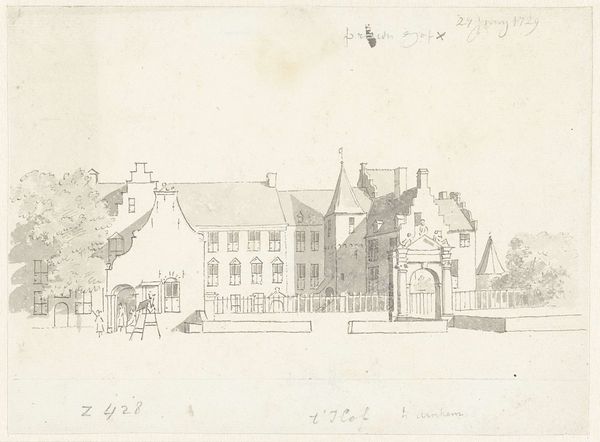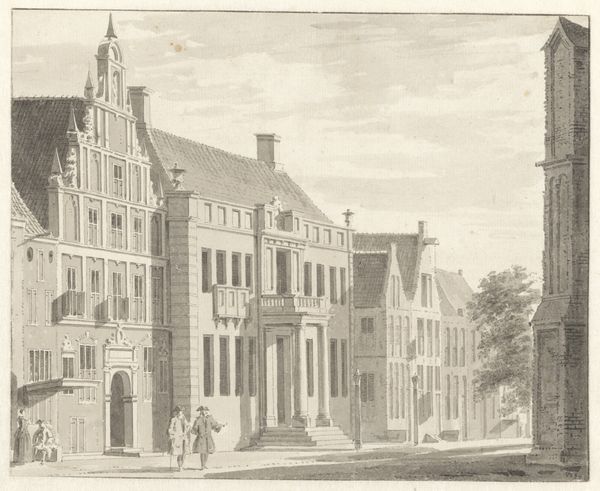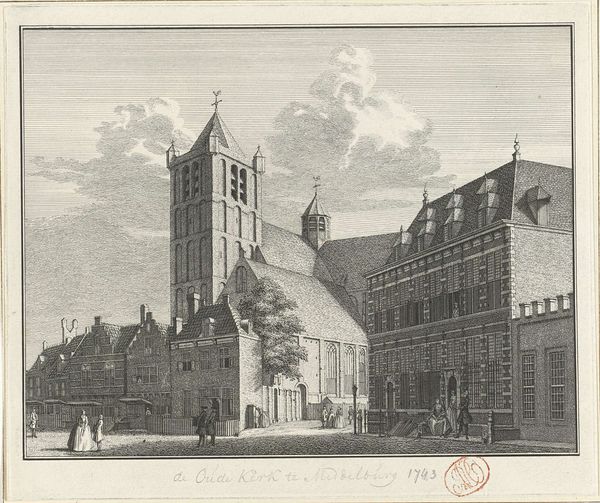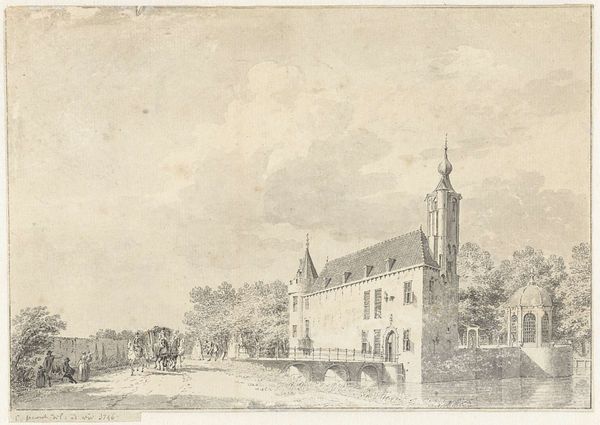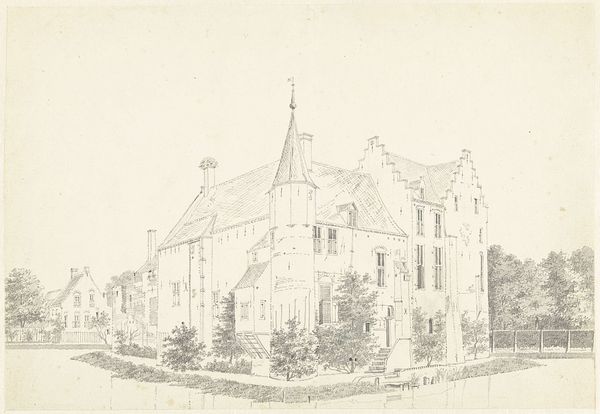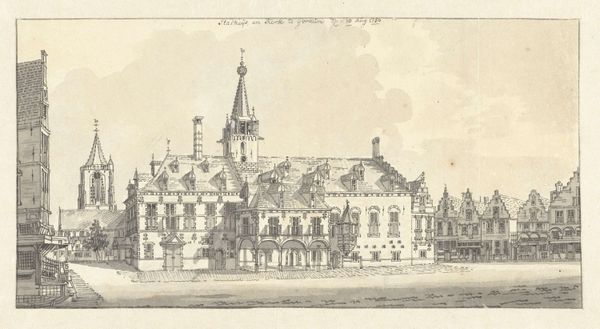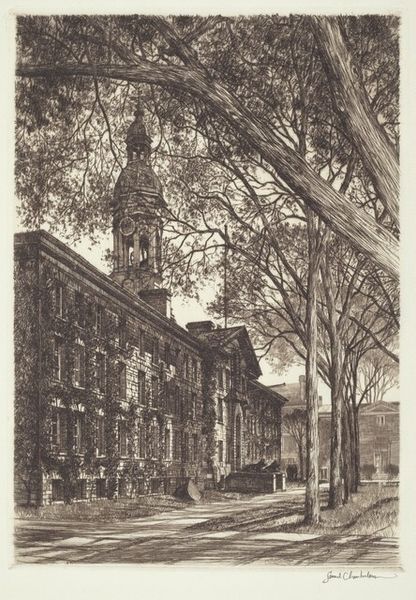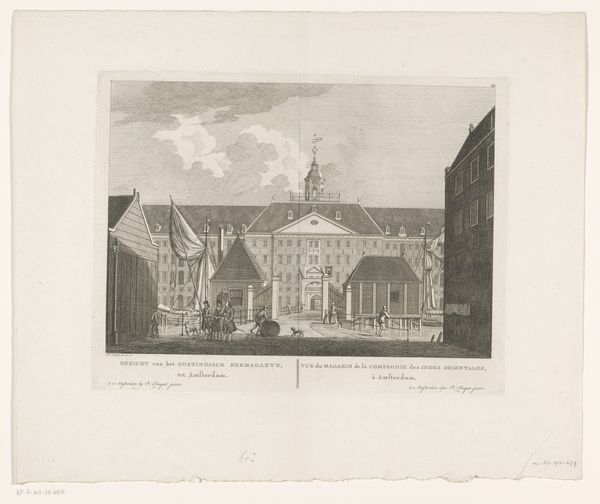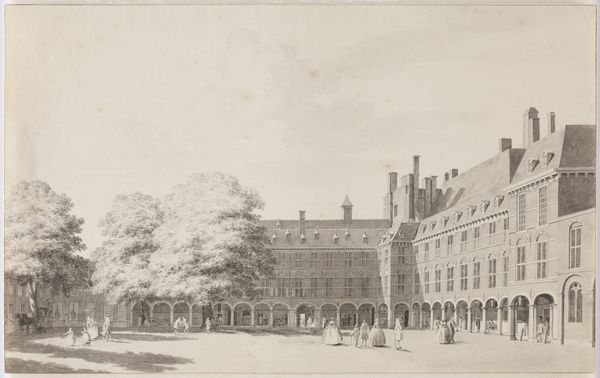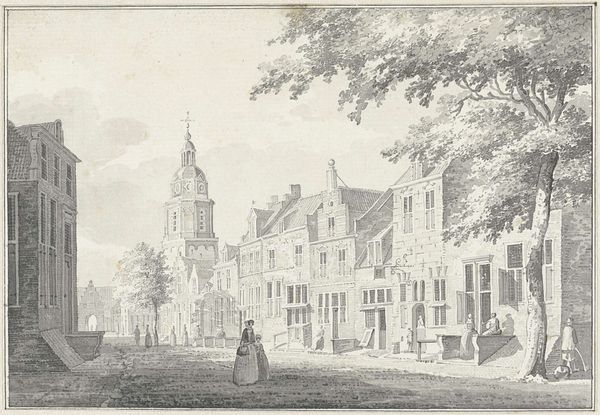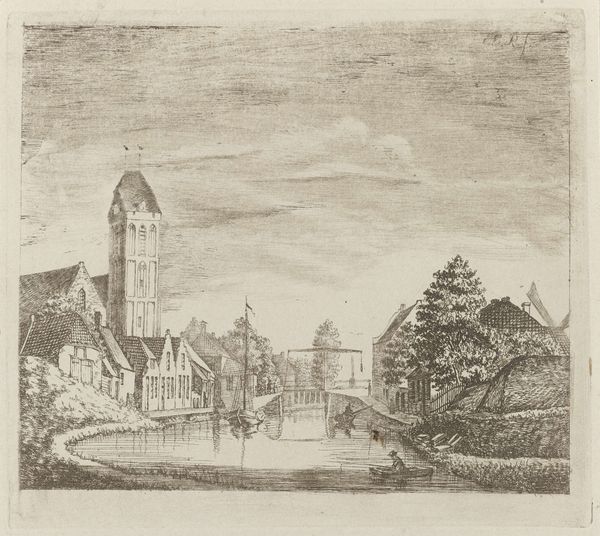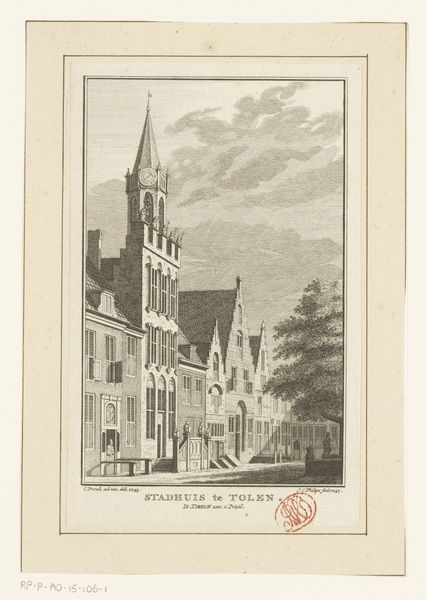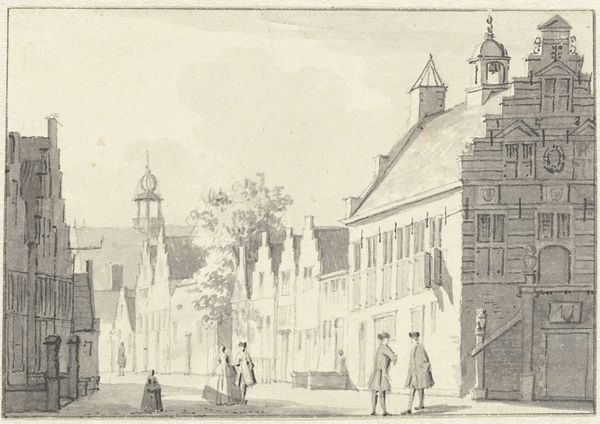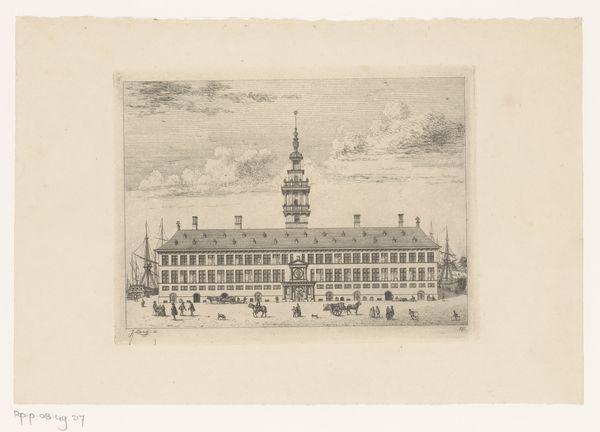
Fulo Hall, Institute for Advanced Study, Princeton University 1941
0:00
0:00
drawing, print, etching, architecture
#
drawing
# print
#
etching
#
landscape
#
cityscape
#
academic-art
#
architecture
Copyright: National Gallery of Art: CC0 1.0
Editor: Here we have Louis Conrad Rosenberg's "Fulo Hall, Institute for Advanced Study, Princeton University," an etching from 1941. The details captured in the stonework are what immediately grabbed me. How does the etching technique influence our understanding of the building and its purpose? Curator: The etching technique itself speaks volumes. It allows for this incredibly detailed, almost photorealistic depiction, right? But think about the labour involved in creating the plate, the acid etching away at the metal, the conscious decision to depict this particular building, this Institute. The act of creation mirrors, perhaps, the act of intellectual labor happening within those walls. Editor: That's a fascinating perspective! So, the medium reflects the message. But what about the social context? Was there anything specific about this institute that the artist was trying to convey? Curator: Absolutely. Consider when this was made – 1941. The Institute for Advanced Study was becoming a haven for European intellectuals fleeing the war, right? People like Einstein were finding refuge there. Rosenberg, in choosing to depict this specific building using this laborious process, is perhaps documenting a monument to intellectual freedom and the collaborative labour of knowledge production in a time of immense social upheaval. The building becomes a symbol of resistance through intellectual pursuits. Editor: I see, the institute becomes not just a building, but a tangible result of that collective and free labour. So by choosing this subject the artwork captures an idea about intellectual effort rather than the aesthetics of the place alone. Thank you. Curator: And that subtle understanding comes from considering not just the image, but how it was made and when. Thinking materially illuminates its social relevance.
Comments
No comments
Be the first to comment and join the conversation on the ultimate creative platform.
